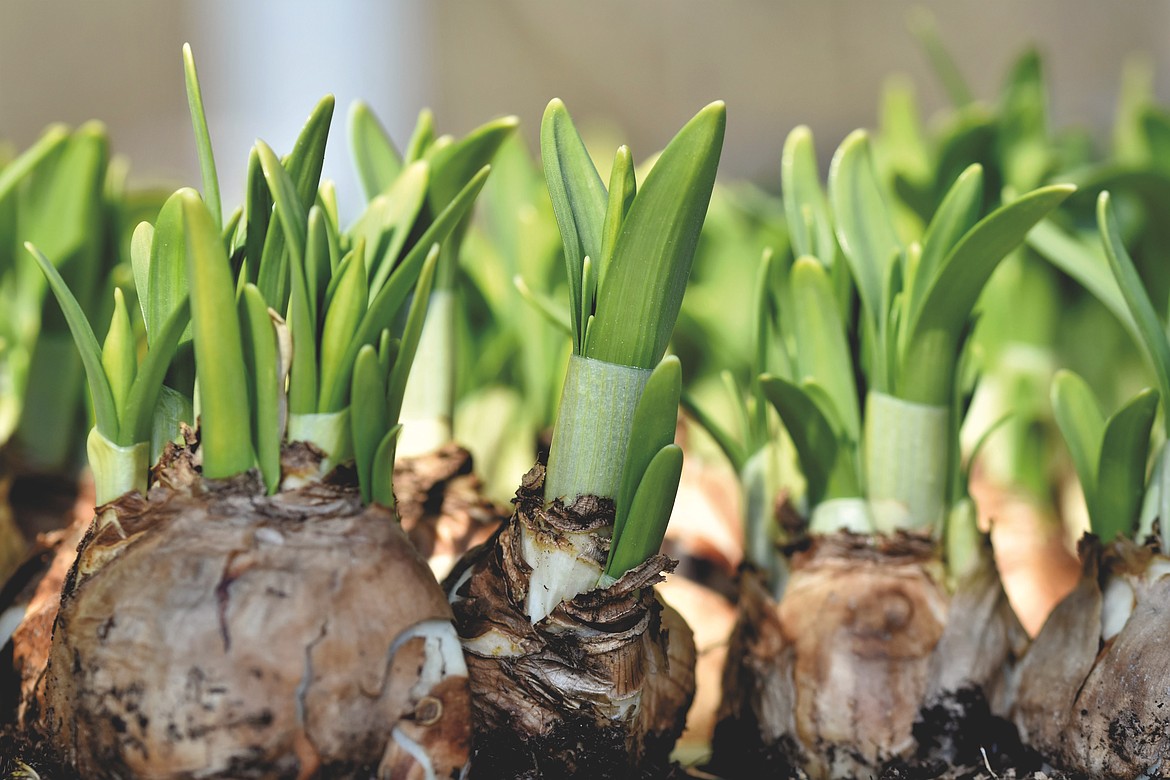Fall nears; time to divide, transplant and set bulbs
Our hot, dry summer has been wonderful for the grain and produce harvest, but really rough on those of use with ornamental gardens that need plenty of water.
However, fall is on the way, and from now until freezing is time to put out bulbs, tubers corms. You can divide, transplant or plant new bulbs (or plants) now.
The reason for fall planting is that bulbous plants must undergo a natural “cold treatment” in the ground. Over the winter, the cold weather dormancy triggers a chemical mechanism within the bulb that sets the process of blooming in motion.
If you’ve sent for bulbs that may be late arriving, get them in the ground. In general, bulbs should be planted before a hard freeze, but since they will not last until next season in the refrigerator, get them in the ground as soon as possible. Better to chop through the hard earth and plant them deep; this at least gives them a chance that they wouldn’t have in the fridge.
When planting bulbs, follow depth instructions and if you wish, give them a little bulb food. Don’t, however, give any more plant food or fertilizer to anything else in the garden. It’s almost time for dormancy to begin, and plants need to wind down — not be jolted artificially into wanting to grow and put out new growth — which is what fertilizer does. Save it until spring, when new growth needs that “jolt.”
Rule of thumb for division and transplanting is to replant divisions as the same depth they were growing, and please, if you’re moving or dividing a peony, take extra care! These wonderful perennials like to stay in one place (often for 100 years) so if you must divide one, leave the soil on and around the clump as best you can, while cutting with a heavy sharp butcher knife or a sharp hatchet. Have the new hole ready and place the whole clump/division into it, watering well, and providing good rich soil around any empty spaces. Then, leave it alone. Don’t fertilize until spring. Remember that divisions of any bulbous, tuberous, corm-growing plants should never be done more often than every three years.
While most pruning should wait until spring, you may cut away dead, broken, or crisscrossing branches now, but major cutback should be held off until after the snow has come and gone.
It won’t be time to wrap plants, or mulch around tender roots for a while yet, but when the frosts begin to come, do these chores to protect tender perennials and choice shrubs.
Container plants will definitely need attention, whether it’s moving them to winter quarters — a windowed back porch or a well-lighted garage. For really huge containers that stay year-round in the garden, protect them with a wrap of burlap, a wall of straw or heaped-up banks of leaves.
Plastic absorbs too much cold and can freeze the roots of container plants, and ceramic tubs can crack if not given the extra protection. Though it’s too early to do this yet, it’s a good idea to get the materials at hand. I’ve been collecting old burlap bags in readiness.
Rosemary can be moved from the garden to an unheated greenhouse, or even a cool room in the house anytime you feel like it, since the 30-degree night we already had nearly zapped mine.
There’s still going to be plenty of warm weather — hopefully — so be sure to continue watering. Strangely, many people stop watering during this “between” season, when the ground really needs to soak it up for the upcoming cold.
(Editor’s note: For many years, Valle Novak has written gardening and cooking columns for the Daily Bee. "Weekend Gardener" and "Country Chef" became renowned for their humor, information, and common-sense advice on how to do everything from planting to cooking. She left behind many columns to delight her many fans. This is one such column, originally published on Sept. 14, 2008.)



